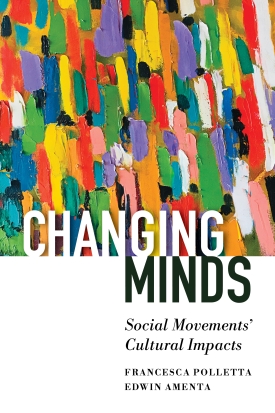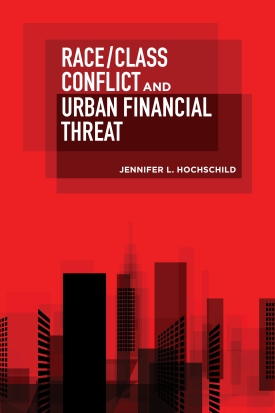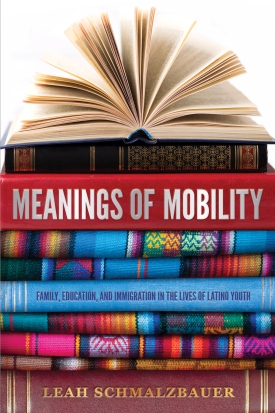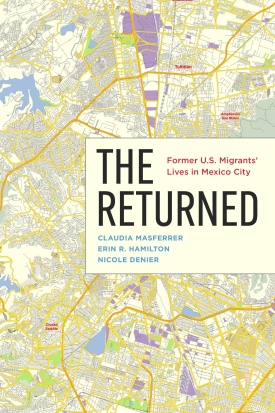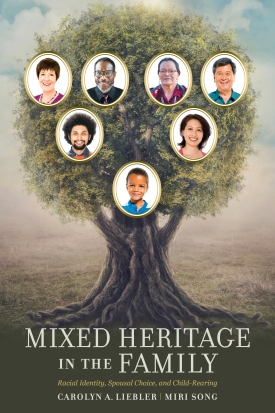
Mixed Heritage in the Family
About This Book
“Mixed Heritage in the Family takes mixed-race studies to the next generation. Carolyn Liebler and Miri Song break new ground by pushing multiraciality beyond the individual and considering how it influences individuals’ choice of spouse, their child-rearing, and the transmission of racial identity to their children. In its mixed methods, its multiple group comparisons, and its careful analysis of place and context, this book is a major advance for the field.”
—WENDY D. ROTH, professor of sociology, University of Pennsylvania
“Through the skillfully blended analysis of census data and in-depth interviews, Carolyn Liebler and Miri Song expand our understanding of mixed-heritage racial self-reporting, especially as it is entwined with the racial identification of spouses and children. Equally importantly, they also advance our knowledge of how local social contexts shape racial identity options.”
—ANN MORNING, James Weldon Johnson Professor of Sociology and divisional dean for the social sciences, New York University
“Mixed Heritage in the Family is a signature achievement. Using interview accounts and decades of national data, this book provides the most comprehensive assessment of mixed-race adults to date. Carolyn Liebler and Miri Song offer a window into the many ways identification, relationship formation, and child-rearing all factor into how mixing can alter the lines between groups. Additionally, these authors reveal how critical it is to consider the role of geography. Liebler and Song provide a sophisticated and accessible narrative to reshape how sociologists understand the role of racial mixture in drawing and redrawing boundaries around racial groups.”
—JENIFER BRATTER, professor of sociology and associate chair, Rice University
As interracial unions and multiracial people become more common in the United States, mixed-heritage people have come to be regarded by some as a bellwether of race relations in the country. Is the growth of this population a sign that we are now in a post-racial era and our racial identities no longer impact our daily lives? In Mixed Heritage in the Family, sociologists Carolyn A. Liebler and Miri Song explore how racially mixed people navigate racial boundaries as they choose spouses and raise families.
Liebler and Song break new ground by being the first to combine and integrate the study of three aspects of life for people of mixed racial heritage – identity, spouse choice, and childrearing. This integrated approach reveals how complicated racial identification can be, and how it can be expressed in one’s choice of partner or in how one raises their children. The authors draw on census data and interviews with Asian-White, Black-White, and American Indian/Alaska Native-White mixed people to better understand how their identity choices are related to their choice of spouse and how they racially identify and raise their children.
Increasingly, mixed people in the United States are identifying with multiple races. However, the authors find that mixed-race people are not a monolith and that how and why they identify varies considerably between and within each group. They found several common factors that influenced whether mixed-race people choose to identify as biracial, solely White, or solely as a racial minority. These factors include the history of the specific minority race in the U.S., the racial demographics of where they were raised, their social and cultural exposure to their White and non-White backgrounds, their attachment to their racial backgrounds, and how they are seen racially by others.
The way mixed-heritage people identify was closely tied to the race of their spouse. However, having a White spouse did not necessarily mean the mixed-race person felt disconnected from their non-White heritage. White spouses varied in their racial consciousness and their interest in the culture of their mixed-race spouse’s minority ancestry. The spouse’s race, and the nature of racial overlap between the spouses, was also key in the racial upbringing of a mixed-heritage person’s child. In families where the parents share a minority racial heritage, couples lean into their shared ‘family race’, which guides their parenting choices and family life. Many mixed heritage parents found it important to foster racial pride in their children and combat negative racial stereotypes.
Liebler and Song caution against making superficial predictions about the state of race relations in the U.S. based on an increase in the multiracial population. They show that race has not become less salient in the lives of many mixed-race people—American society is not post-racial.
Mixed Heritage in the Family breaks new ground, provides compelling insights in its examination of the lives of mixed-race people, and shows how complicated racial identification can be.


